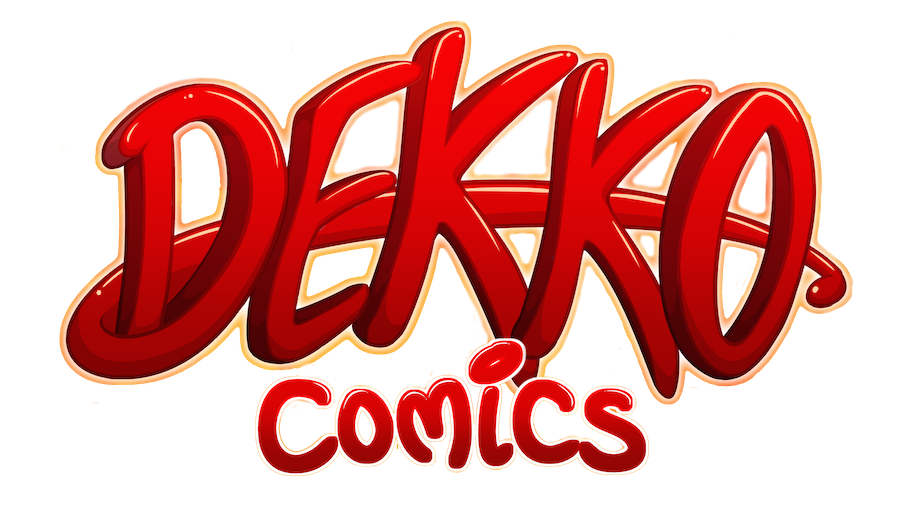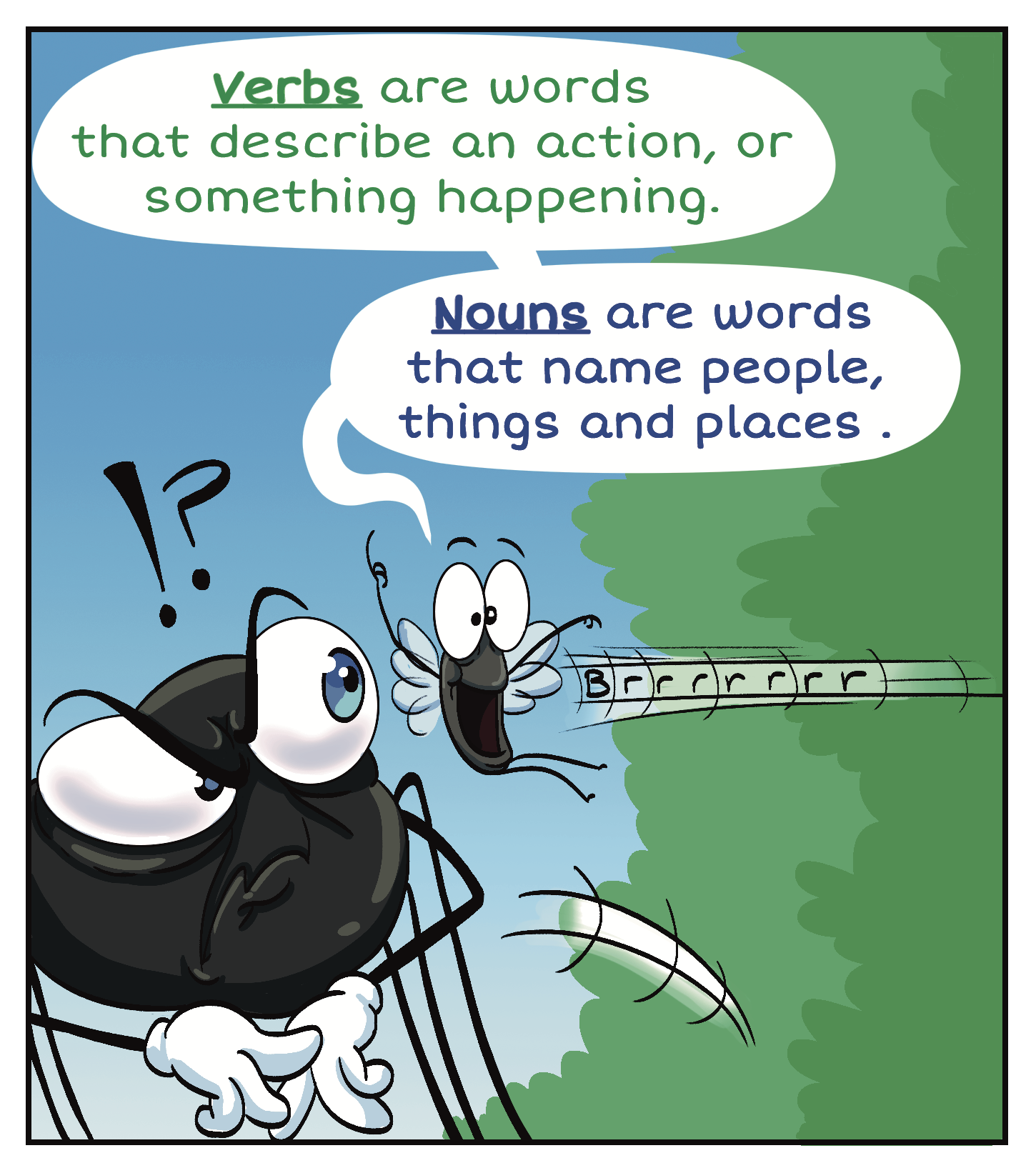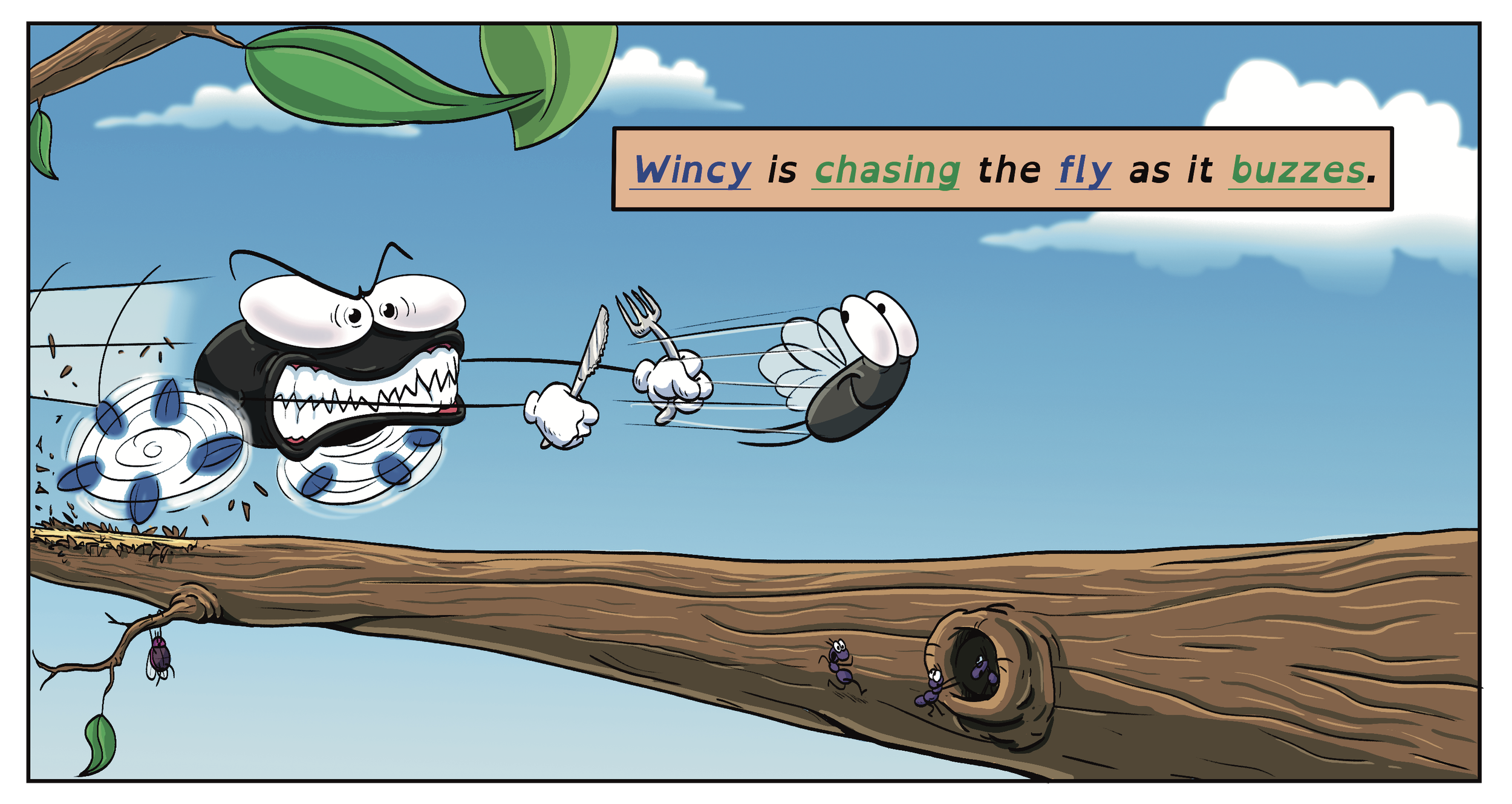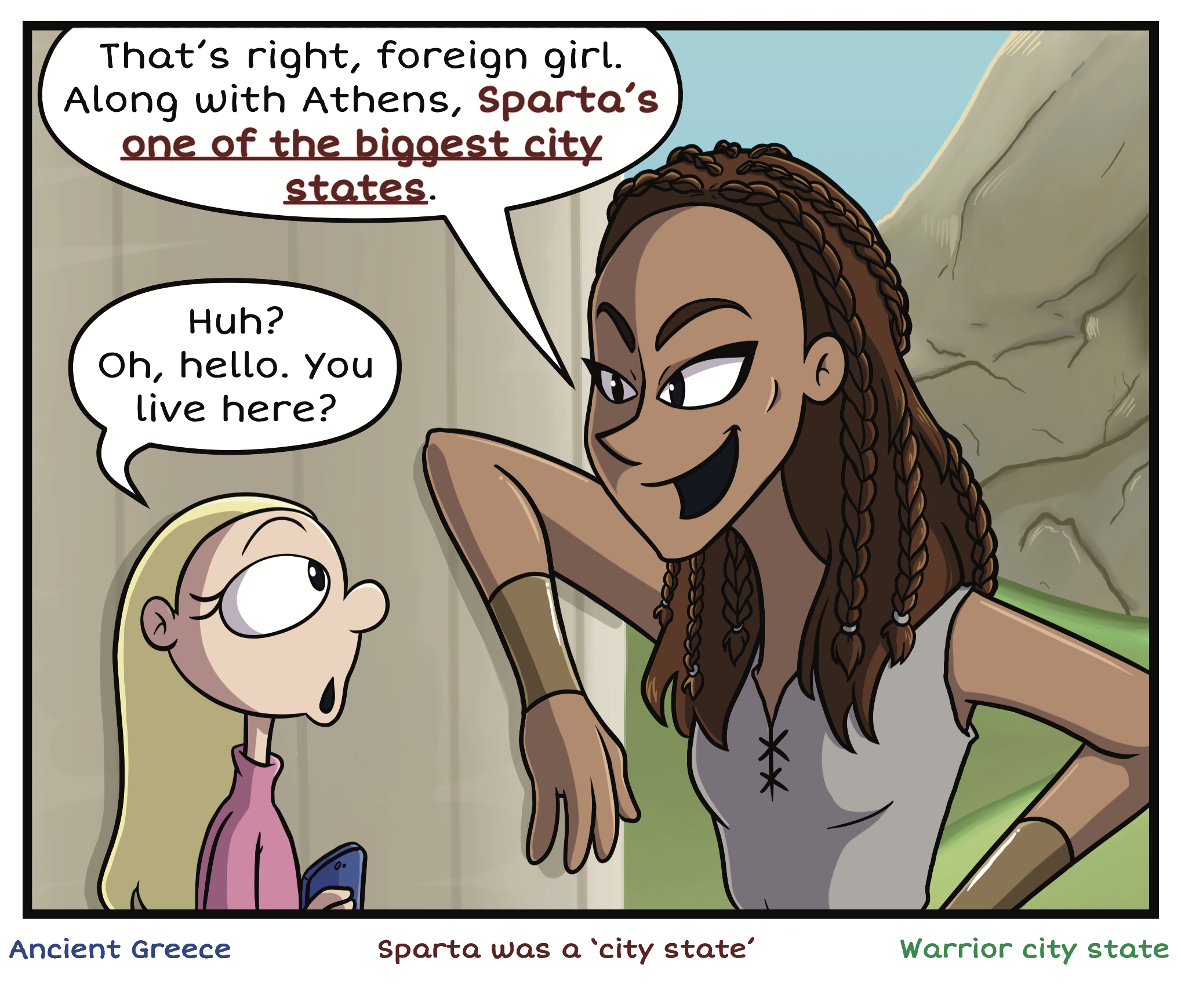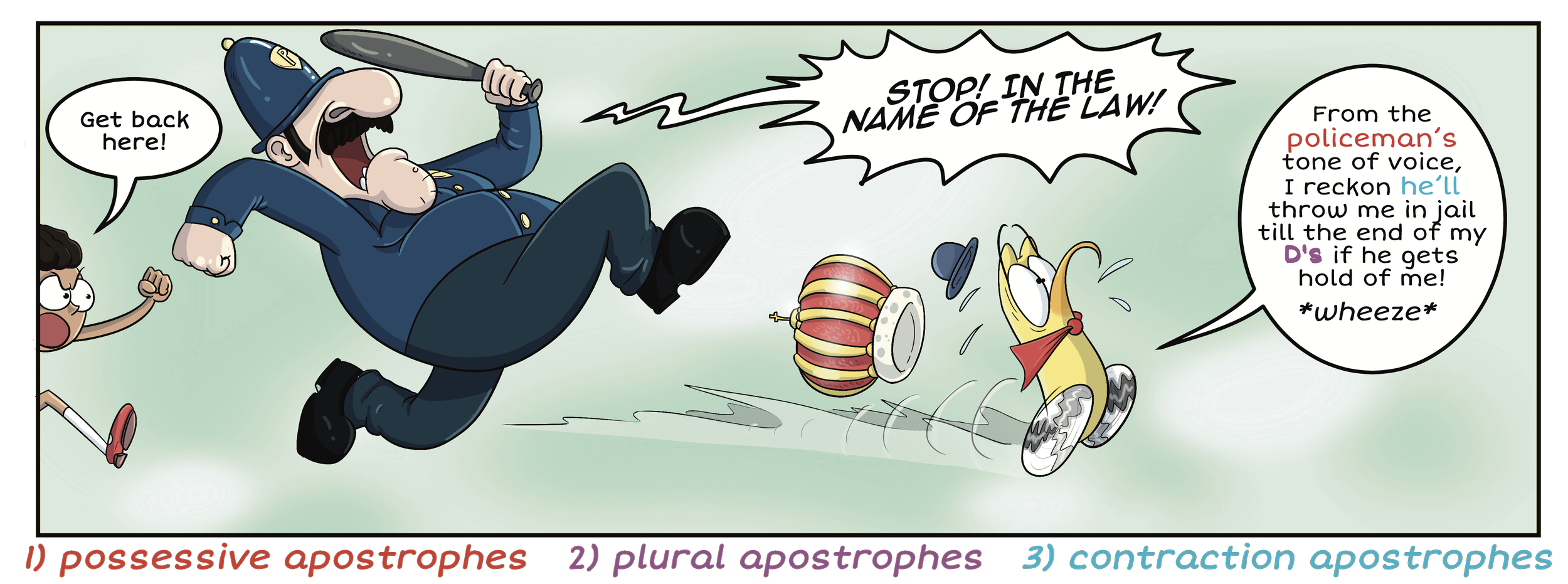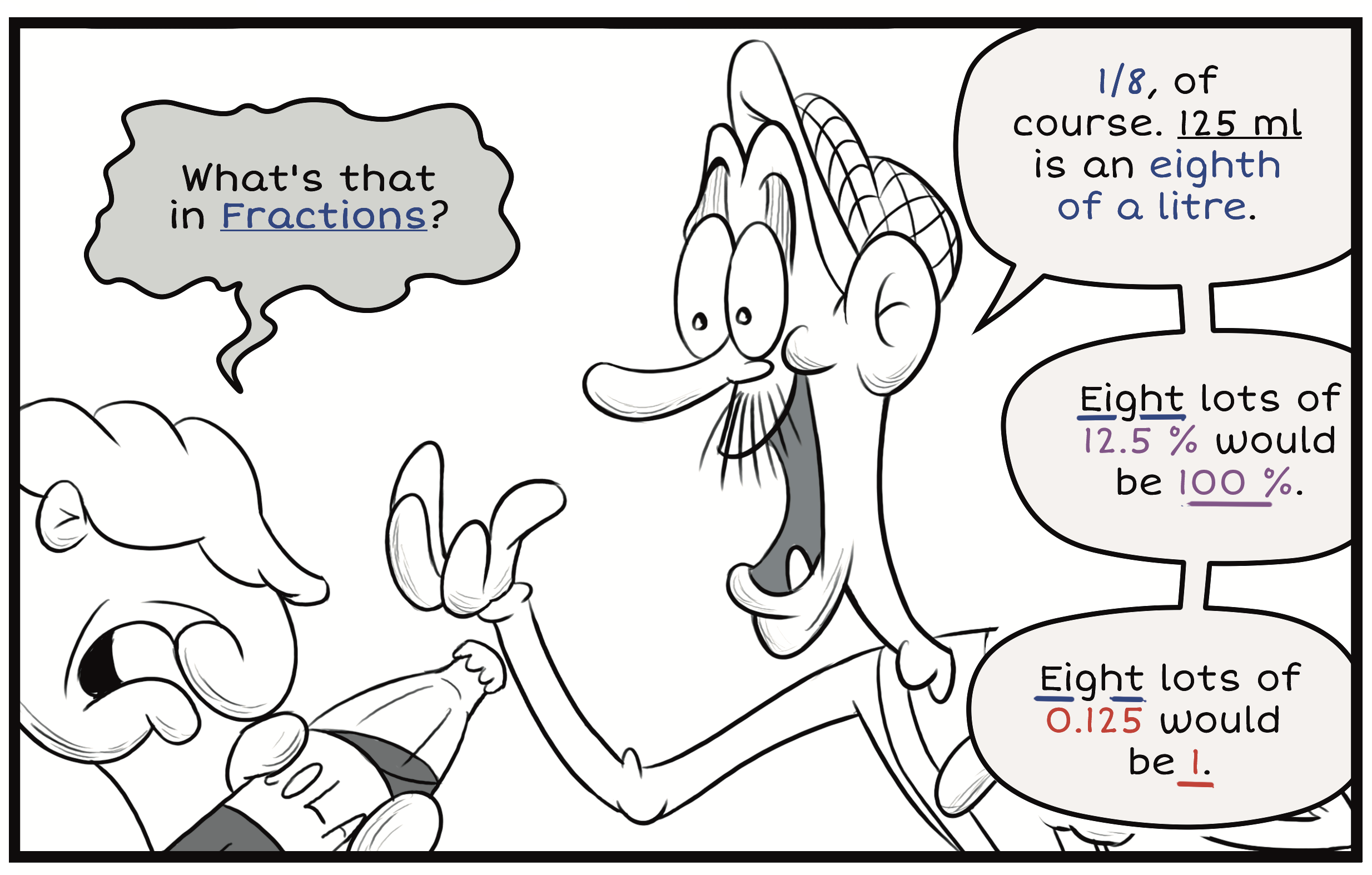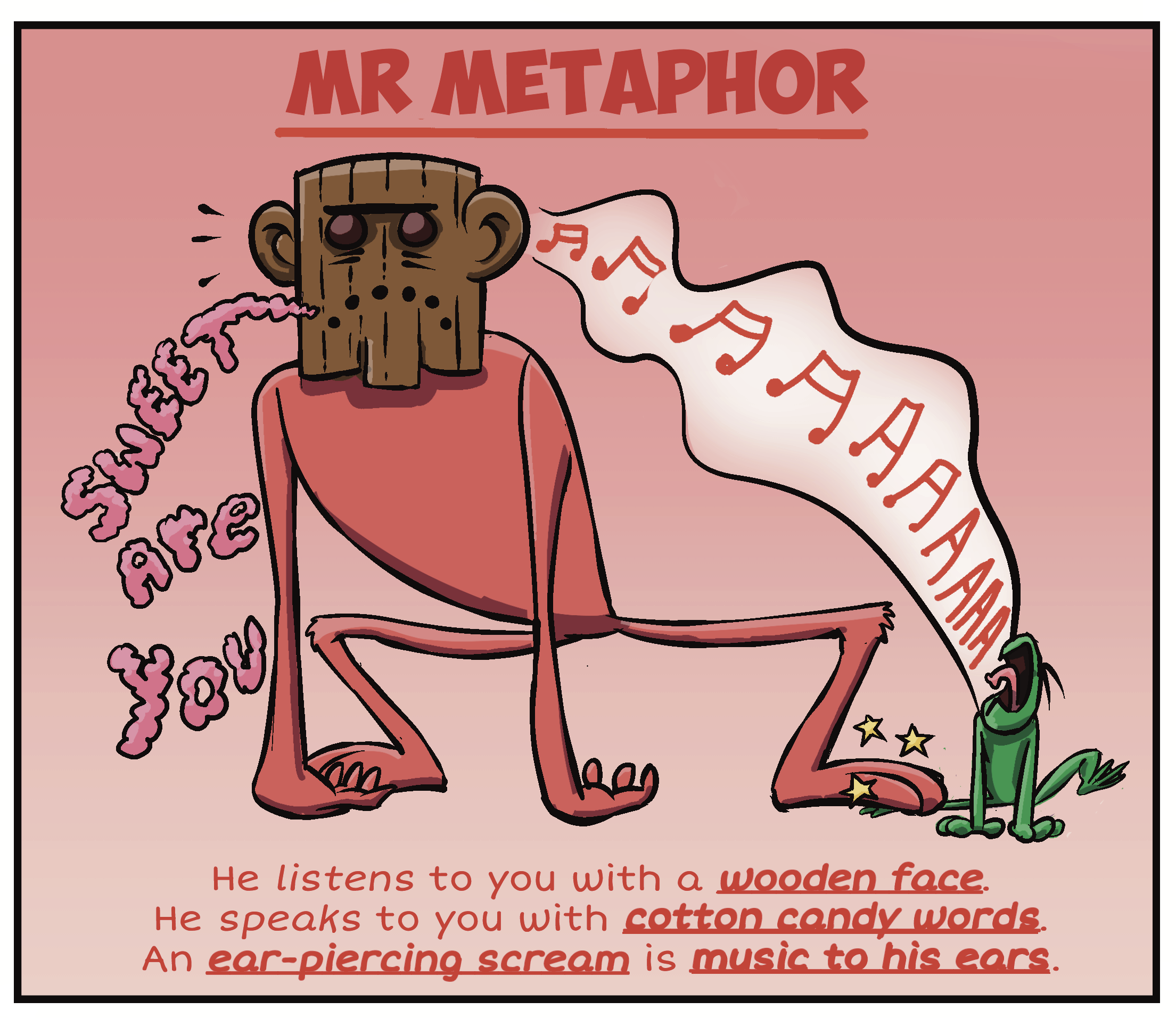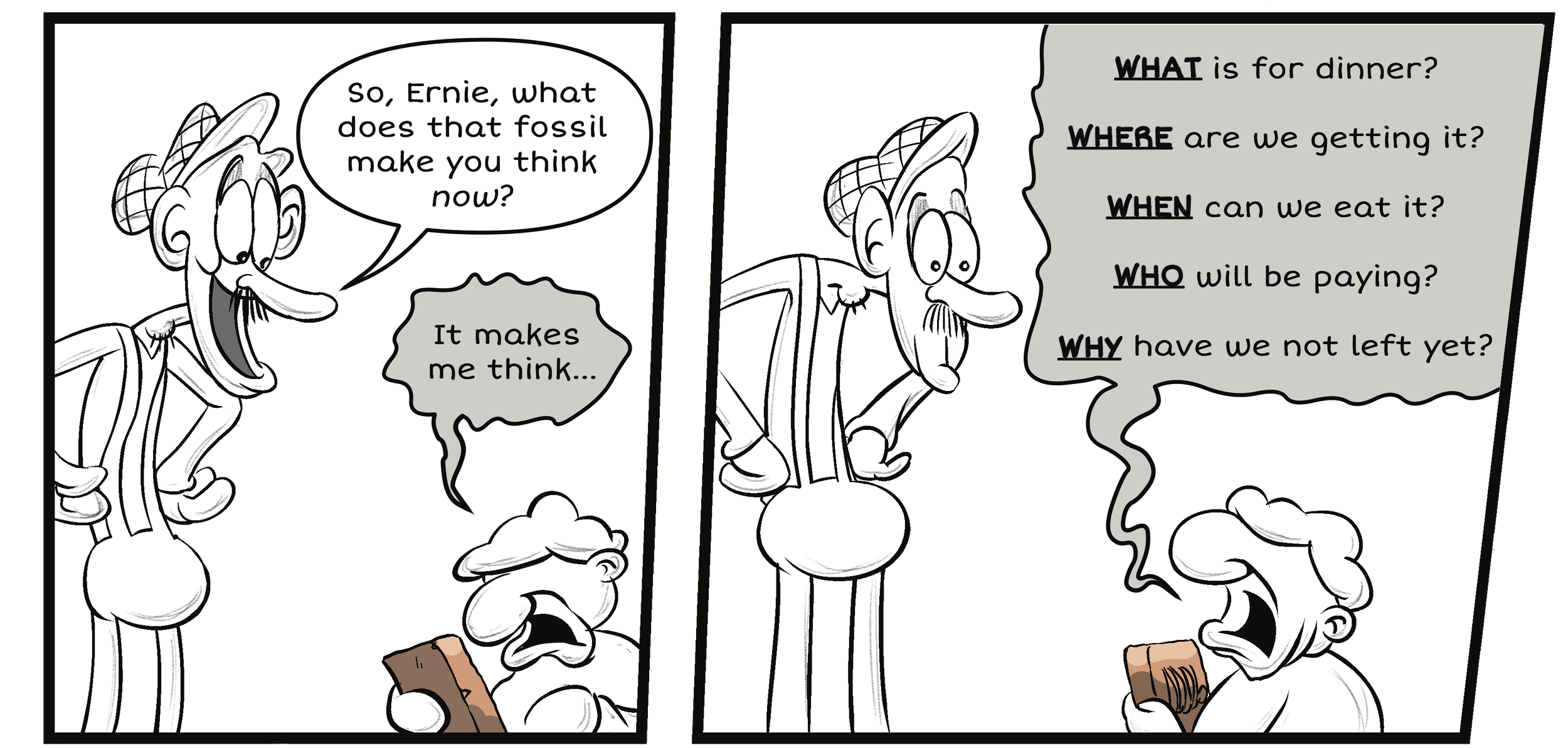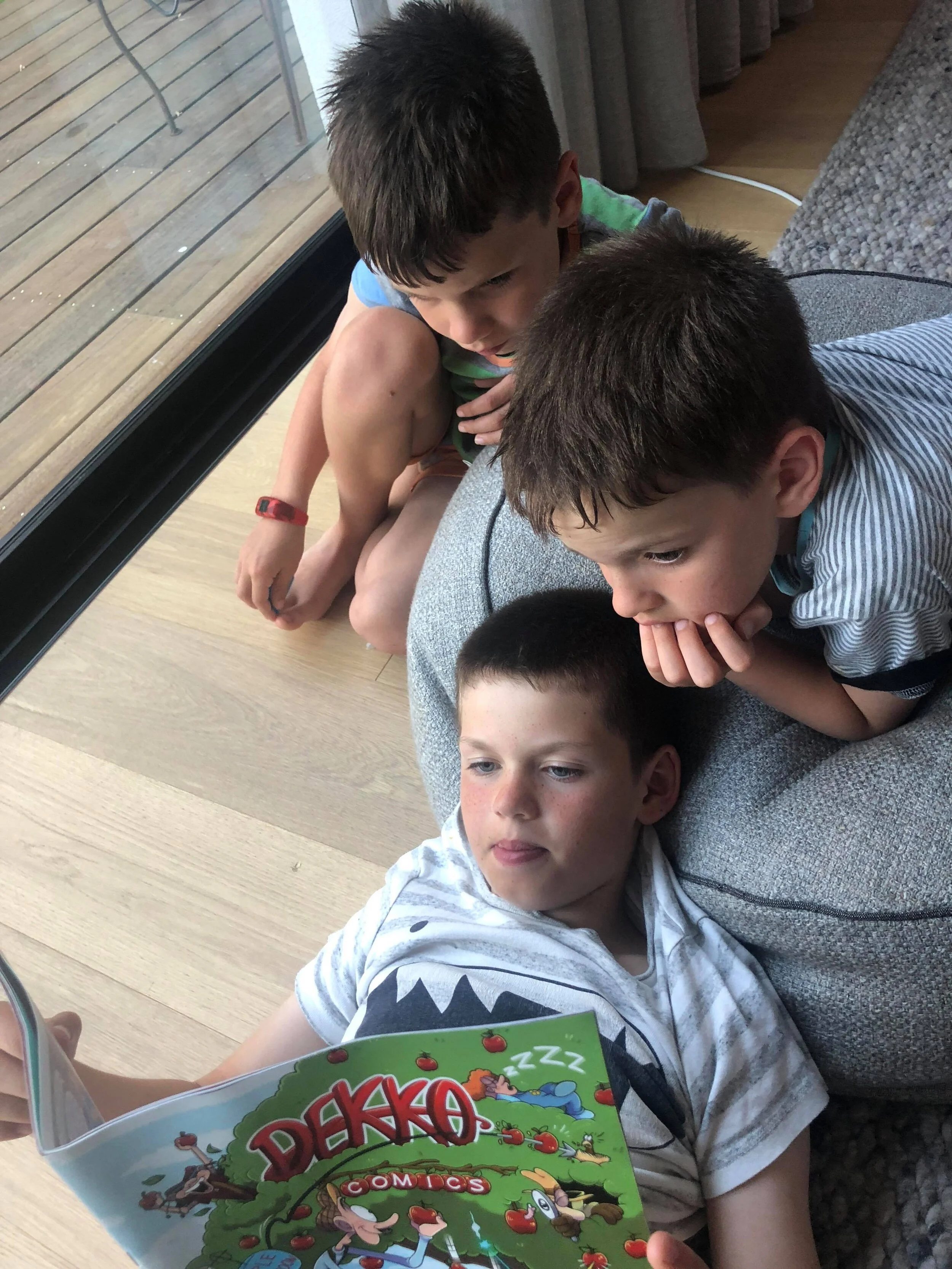How do Dekko Comics support
dyslexic learners?
Dekko Comics are a valuable resource for all learners but they have proven especially helpful for those with dyslexia.
Dekko Comics have been designed with dyslexia-friendly features in mind and are naturally easier to read through the comic format.
Here are some examples of Dekko Comics’ characteristics that can be helpful for dyslexic readers:
Dyslexia-Friendly Font
Dekko Comics use a dyslexia-friendly font to make it easier for readers who might struggle with more standardised text.
Comics traditionally feature uppercase lettering to conserve space yet Dekko knows this can greatly impact readability for those with dyslexia. It is why Dekko Comics include more accessible lettering (every detail helps).
For some of our comics, like our “Timbot” stories, we even use coloured speech bubbles to make it easier for those who struggle with black text against a white background.
Colour Coding
As seen in mind mapping, colour coding has proven a popular and helpful technique for dyslexic learners.
Many dyslexic learners will highlight key points in their mind maps or study notes with different colours to help them process the information, while also making it more appealing.
It is why Dekko Comics utilise colour coding throughout to help readers take note of what they are learning and draw attention to key points, lessons and information. This is especially beneficial for dyslexic learners who may struggle with processing information and identifying key points.
Colour coding also helps readers to remember and relocate facts they have learned when re-reading Dekko Comics.
Using Key Words & Phrases
When Dekko Comics highlight an educational point in a story, many of the comics include a note of the key word or phrase associated with that point at the foot of the page.
It provides another useful reference point that can help learners to organise and remember key information.
Dyslexic learners who struggle with mentally processing and organising information can find this particularly helpful.
Using Speech Bubbles
One of the biggest problems for students with dyslexia is overwhelming blocks of text.
The comic format allows for information to be naturally broken down into speech bubbles.
It is a feature that not only helps with processing key information but also identifying speakers and the information they share visually on the page.
Comics are a multimodal medium and have to use words economically, meaning speech bubbles communicate key information without overloading readers. By sharing information in an enjoyable and concise way, comics removes the need for bullet-points.
Through the use of speech bubbles, comics create a symbiotic relationship between words and visuals - which is why they are such a valuable medium for dyslexic learners.
Using Panels / Boxes
Like speech bubbles, the comic format also helps to define key points and information through comic panels. Each comic panel shares a scene or moment in a sequence that may hold a different fact or piece of information that can be easily remembered in relation to that scene.
Through utilising many of the benefits of bullet points and mind maps, Dekko Comics similarly break down information into panels in ways that can benefit dyslexic learners.
Visuals
Dekko Comics do not just use visuals to tell a comic story, they are used to teach information as much as the words themselves.
Dekko understands the value of visuals as a communication tool, and not just a pleasing picture. Each image acts as a landmark or anchor for the reader to remember and refer back to.
Furthermore, dyslexic readers can benefit from having more than just words to interpret, comprehend and remember information — which Dekko Comics provide in a variety of ways.
Storytelling
Through the use of storytelling, Dekko Comics incorporates key information and lessons into memorable narratives — providing valuable anchor points for learners to understand and recall information from.
Because Dekko Comics feature engaging, character-driven, stories they naturally motivate readers to read on. This can be especially helpful for reluctant readers or anyone with a negative relationship with reading or particular subjects.
By sharing key facts through enjoyable narratives, dyslexic learners have more avenues to navigate and remember material compared to words and numbers alone. These characteristics of Dekko Comics are especially helpful for creative minds who like exploring the world through stories.
Fun & Funny
Dekko Comics aim to make comics that are enjoyable to read with or without the educational element. Doing so helps to break down motivational barriers and increase positive relationships with the material and its lessons, regardless of the literacy element or school subject being covered.
Incorporating strong, FUN bits into the comic story also creates a strong impression on the reader and offers something memorable for learners to refer back to.
The same can be said for making a narrative FUNNY. A joke or fact that makes the reader smile or laugh automatically becomes much easier to remember than a fact written on its own.
For students with dyslexia, self-esteem is all too often a critical issue when it comes to issues around reading and schoolwork. Dekko Comics knows that making fun and funny comics for learners to experience can encourage those with dyslexia to read on and put their fears to one side.
Made by a Dyslexic Author
Dekko Comics are based on a technique that its founder and creator, Rossie Stone, used on himself for his exams while he was at school.
Rossie is dyslexic and he really struggled at school, finding himself at the bottom of most of his academic classes. Despite extra support from his school and working incredibly hard during his exam revision, Rossie still ended up with poor grades.
It wasn’t until secondary school and the end of his school studies that Rossie discovered he could turn his study notes into fun comic strips. It was a technique that helped him greatly with his self-esteem and also resulted in his first Grade A in an academic exam!
Happy Readers!
Children across the world love Dekko Comics and often re-read them for fun. If you’re still unsure how Dekko Comics can be a helpful resource for dyslexic learners, you need only ask those who have already used them.
”These are simply fantastic, my dyslexic son finds reading boring and it’s a struggle to get him to read. He LOVES these and wants the next issue. He even said “Mum, these are really funny and I am learning things along the way”. He’s not ever mentioned fun and reading in a sentence before.” - Parent of a dyslexic child
ASN Teachers and Learning Support staff regularly message us to say how helpful Dekko Comics have been as a learning resource and how much their pupils love them.
Though Dekko Comics are designed with supporting dyslexic and neurodivergent learners in mind, there is no packaging or stickers on the comics to highlight these features as we know it can lead to a feeling of isolation for many learners.
Dekko Comics are a resource that EVERYONE can benefit from, and they are regularly used in mainstream classes. Dekko wants to challenge the stigma surrounding neurodiversity and highlight how traditional text-based materials often overlook so many.
Dekko Comics can help to shape and inspire healthier, happier, learners.
For more feedback, click the button below.
More Dyslexic Support
Even though Dekko Comics works hard to support dyslexic learners and readers, we understand there is still more than can be done.
Dyslexia, like many forms of neurodiversity, is not experienced by every dyslexic person in the same way — and different learners will have different strengths and struggles.
It is one of the reasons Dekko developed Dekko Video Courses, which aim to provide practical tips and strategies for a variety of learning types in an entertaining way.
We understand what it is like for readers and learners to feel left behind by traditional materials, which is what Dekko Comics and Dekko Video Courses aim to overcome by providing learning resources that are more accessible, engaging and inclusive.
Click below to find out more about Dekko Video Courses.
Where can I read Dekko Comics?
Dekko Comics are available in print and digital formats. Print issues can be ordered from our online shop or you can subscribe online to read the entire Dekko catalogue digitally.
Below you can order the full Dekko Comics curriculum set (#1-12) which features 144 educational comic stories, plus extra material, posted straight to your front door.
